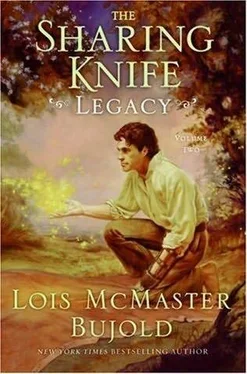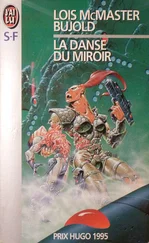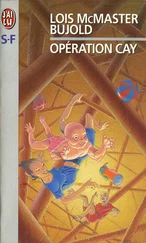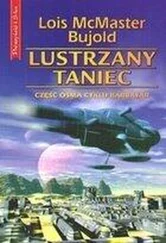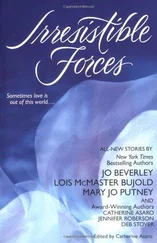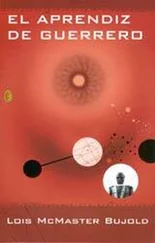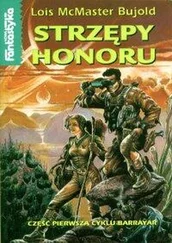“I figure to draw our own tent from Stores.”
They owned a tent? “Where will we set it up?”
“I have an idea or two. If they don’t work out, I’ll find a third.”
Which seemed to be all she was going to get right now. Was this clash with his family over, or not? It wasn’t that she thought Dag was lying to her, so much as that she was beginning to suspect his idea of a comfortable outcome did not match hers. If Lakewalkers didn’t marry farmers—or at least, didn’t do so and then take the farmers home—she wouldn’t expect the feeling here against her to be trifling or easily set aside. If this was something no one had successfully done before, her faith that Dag will know what to do was…if not misplaced, more hope than certainty. She wasn’t afraid of hard, but when did hard shade over into insurmountable?
Her stomach growled. If Dag was half as fatigued as she was, it was no wonder nobody seemed able to think straight. Food would help everything. She rolled the mysterious plunkin across in front of the hearth and stared at it. It still looked disconcertingly like a severed head. “What do we do with this?”
Dag sat cross-legged and smiled—not much of a smile, but a start. “Lots of choices. They all come down to plunkin. You can eat it raw in slices, peel it and cut it up and cook it alone or in a stew, boil it whole, wrap it in leaves and cook it in campfire coals, stick a sword through it and turn it on a spit, or, very popular, feed it to the pigs and eat the pigs. It’s very sustaining. Some say you could live forever on plunkin and rainwater. Others say it would just seem like forever.” He gestured to her belt knife, one of his spares that he’d insisted she wear since they’d left West Blue. “Try a slice.”
Dubiously, she captured the rolling globe between her knees and stabbed it. The brown rind was rather hard, but once opened revealed a dense, pale yellow fruit, solid all the way through, without a core or pit or seeds. She nibbled out a bite as if from a melon slice.
It was crunchy, not as sweet as an apple, not as starchy as a raw potato…“A bit parsnippy. Actually, quite a bit nicer than parsnip. Huh.” It seemed the problem was not in the quality, but in the quantity.
For simplicity, and because she really didn’t feel comfortable cooking over Dar’s fireplace, used for who knew what sorcerous processes, they ate it raw in slices. Although Fawn did draw the line at Dag’s attempt simply to stab his portion with his hook and gnaw around the edges; she peeled his piece and made him get out his fork-spoon. The plunkin was surprisingly satisfying. Hungry as they both were, they only disposed of half a head, or root, or whatever it was.
“Why don’t farmers have this?” Fawn wondered. “Food gets around. Flowers, too. Animals, too, really. We could grow it in ponds.”
Dag gestured with his slice, stuck on his fork-spoon. All right, so the official eating tool hadn’t made that much difference; it still made it all seem more like a real meal. “The ears need a little tickle in their grounds to germinate. If farmers planted them, they’d just go down in the mud and rot. It’s a trick most every Lakewalker here learns. I hated raft duty when I was young, thought it was the dullest thing possible. Now I understand why the old patrollers didn’t mind taking their turns, and laughed at me. Soothing, y’know.”
Fawn crunched valiantly and tried to picture a young, impatient Dag sitting out on a raft, mostly undressed, coppery skin gleaming in the sun, grouchily tickling plunkin ears, one after another after another. She had to smile. With two hands, scarless and unmarred. Her smile faded.
“They say the old high lords of the lake league made wonderful magical plants, and animals too,” Dag said thoughtfully. “Not many seemed to have survived the disasters. Plunkins have tricky growing conditions. Not too deep, not too shallow, mud bottoms. They won’t take in those deep, clear, rocky-bottomed lakes east or north. Makes them a regional, er, delicacy. And, of course, they need Lakewalkers, year after year after year. Makes me wonder how far back this camp goes, really.”
Fawn considered the continuity of plunkins. When all their world was falling apart around them, some Lakewalker ancestors must have kept the crop going. For hope? For habit? For sheer stubbornness? Eyeing Dag, she was inclined to bet on stubbornness.
They burned the rinds on the fire, and Fawn set the spare half aside for breakfast. Outside, the green dark of the storm had given way to the blue dark of night, and the rain had slowed to a steady drizzle. Dag hooked their bedrolls closer together.
Fawn felt her knife sheath shift between her breasts as she crawled across to sit again on her blanket, and reached up to touch it. “Do you think Dar was telling the truth about the knife?”
Dag leaned back against his saddlebags, damp bare feet to the fire, and frowned thoughtfully. “I think everything Dar said was truth. As far as it went.”
“So…what does that mean? Do you think he was holding something back?”
“Not sure. It’s not that…I’d say, the knife is a problem he wants to have go away, not explore.”
“If he’s as good a knife maker as you say, I’d think he’d be more curious.”
Dag shrugged. “Folks are at first. Like Saun the Sheep, or me at Saun’s age—it’s all new and exciting. But then it becomes the same task over and over, and the new becomes rare. Whether you then find novelty to be exciting or something to resent…Thing, is, Dar has spent thirty and more years, all day most every day, making weapons for his relatives and best friends to go kill themselves with. Whatever Dar is doing that lets him go on, I’m not inclined to fool with it.”
“Maybe we should ask after a younger knife maker, then.” Fawn shoved her own saddlebags around, trying for a more comfortable prop, and lay down next to Dag. “So…what did he—and you—mean when you said the ground had to have affinity? You used that word two or three times, like it meant something special.”
“Ah. Hm.” Dag rubbed his nose with his hook. His features were outlined in the orange glow from the fire, lapped by the light with the rest of him falling into shadow. The walls of the shack seemed to recede into a fathomless darkness. “Well, simply that malice ground takes up Lakewalker mortality readily, as the ground of bone takes up that of blood.”
Fawn frowned. “You have to figure, bones take up blood because they were once both together.”
“That’s right.”
“So…” She suddenly wasn’t sure she liked where this was going. “So…?”
“Legend would have it—legend is just like they say, only more dried up, you know?”
She nodded cautiously.
“In fact, no one alive now knows for sure. Those who knew died in the knowing, one, two thousand years ago. Chronicles were lost, time was lost—was it two centuries or five or ten that dropped out, how many generations disappeared in the dark?”
“They kept the plunkins going, anyhow.”
His lips curved briefly. “There is that.”
“So what is this thing that’s known or not known?”
“Well, there is more than one version of how malices came into the world. We know they didn’t used to be here.”
“You’ve seen, what, twenty-seven of them? Up close? I don’t want to know what other people say. What do you believe?”
He sighed. “They say is all I have to go on, for most of it. They say the old lords of the lake league worked great magics in great groups. They combined up under the mastery of the high king. One king, the last king, greater and more cunning than any before, at the apex of the greatest array of mages ever assembled, reached beyond the bounds of the world for…something. Some say immortality. Some say power. The king stories mostly assume evil intent because of evil results—if there is punishment, there must have been a crime. They blame pride and selfishness, or whatever vice they’re especially miffed with. I’m not so sure. Maybe he was attempting to capture some imagined good to share, and it all went horribly wrong.
Читать дальше
